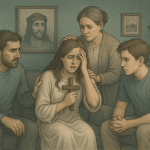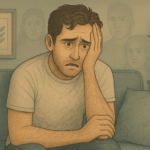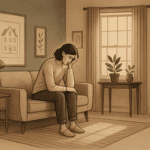Key Takeaways
- Delusions are false beliefs that persist despite evidence to the contrary, often involving paranoia or grandiosity.
- Hallucinations involve sensing things that aren’t present, such as hearing voices or seeing things that aren’t there.
- While both are symptoms of psychosis, they differ in that delusions are cognitive, whereas hallucinations are sensory.
- Common causes include mental health disorders like schizophrenia and medical conditions like brain injuries.
- A Mission For Michael (AMFM) provides personalized care for psychosis through various treatment programs with multidisciplinary teams that focus on whole-person care.
Delusions and Hallucinations in Psychosis
Delusions and hallucinations are prominent features of psychosis, a condition characterized by a disconnection from reality. These symptoms can profoundly impact a person’s perception of the world and their behavior within it.
Definition of Delusion
Delusions are false beliefs that a person holds onto despite clear evidence against them. They are not merely misconceptions or misunderstandings; they are rigidly held and deeply entrenched.
Delusions can manifest in various forms, such as believing one has extraordinary powers or that others are plotting against them. The key aspect of delusions is their resistance to reasoning or contrary evidence.
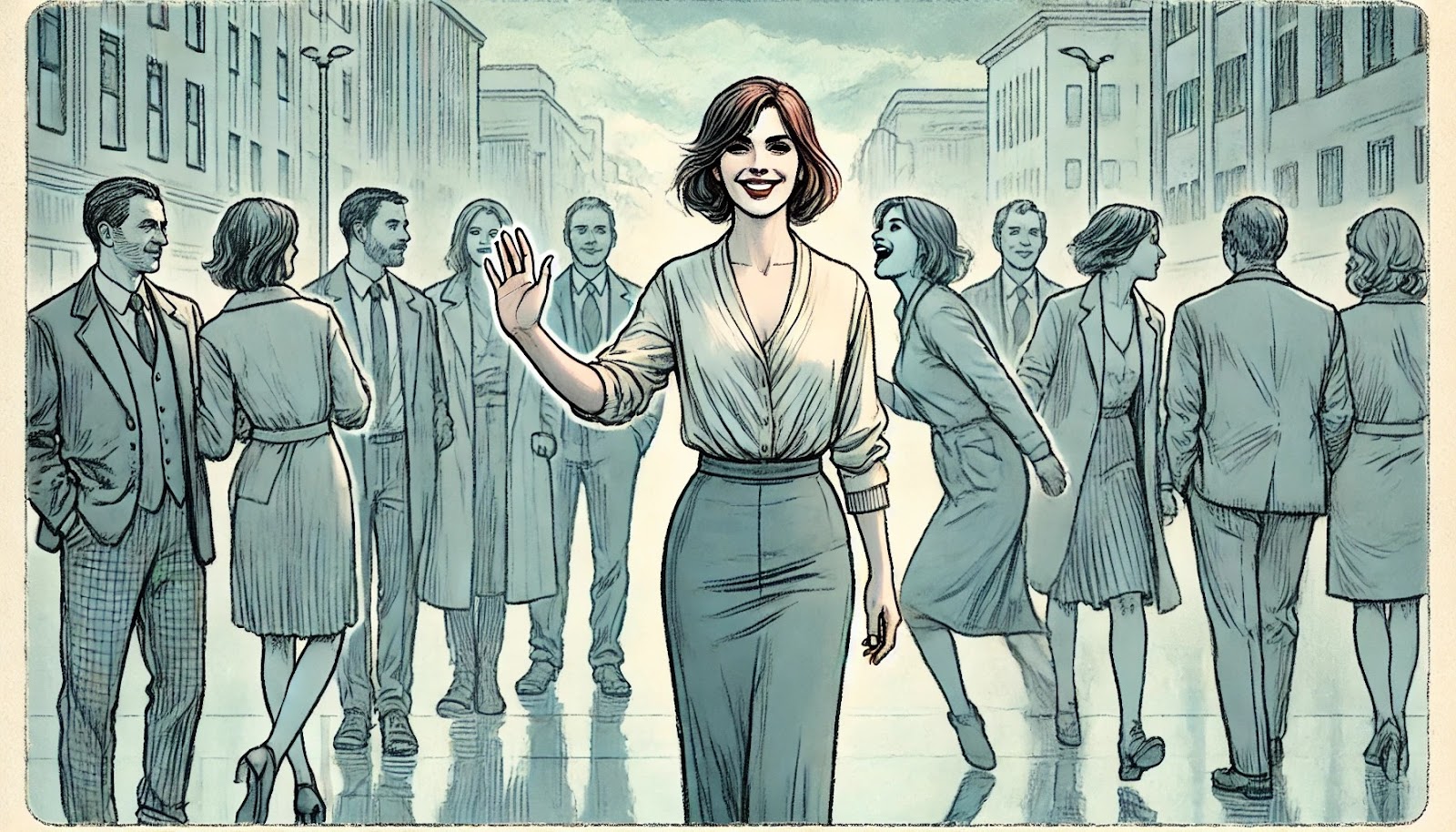
For example, a person might believe they are a famous historical figure, despite all evidence pointing to the contrary. This belief persists even when challenged with facts or logic.
Definition of Hallucinations
Hallucinations, on the other hand, involve experiencing sensations that have no external source. These can occur in any of the senses, though auditory hallucinations such as hearing voices are the most common.
Hallucinations are sensory experiences – meaning they feel very real to the person experiencing them, even if no one else can perceive them.
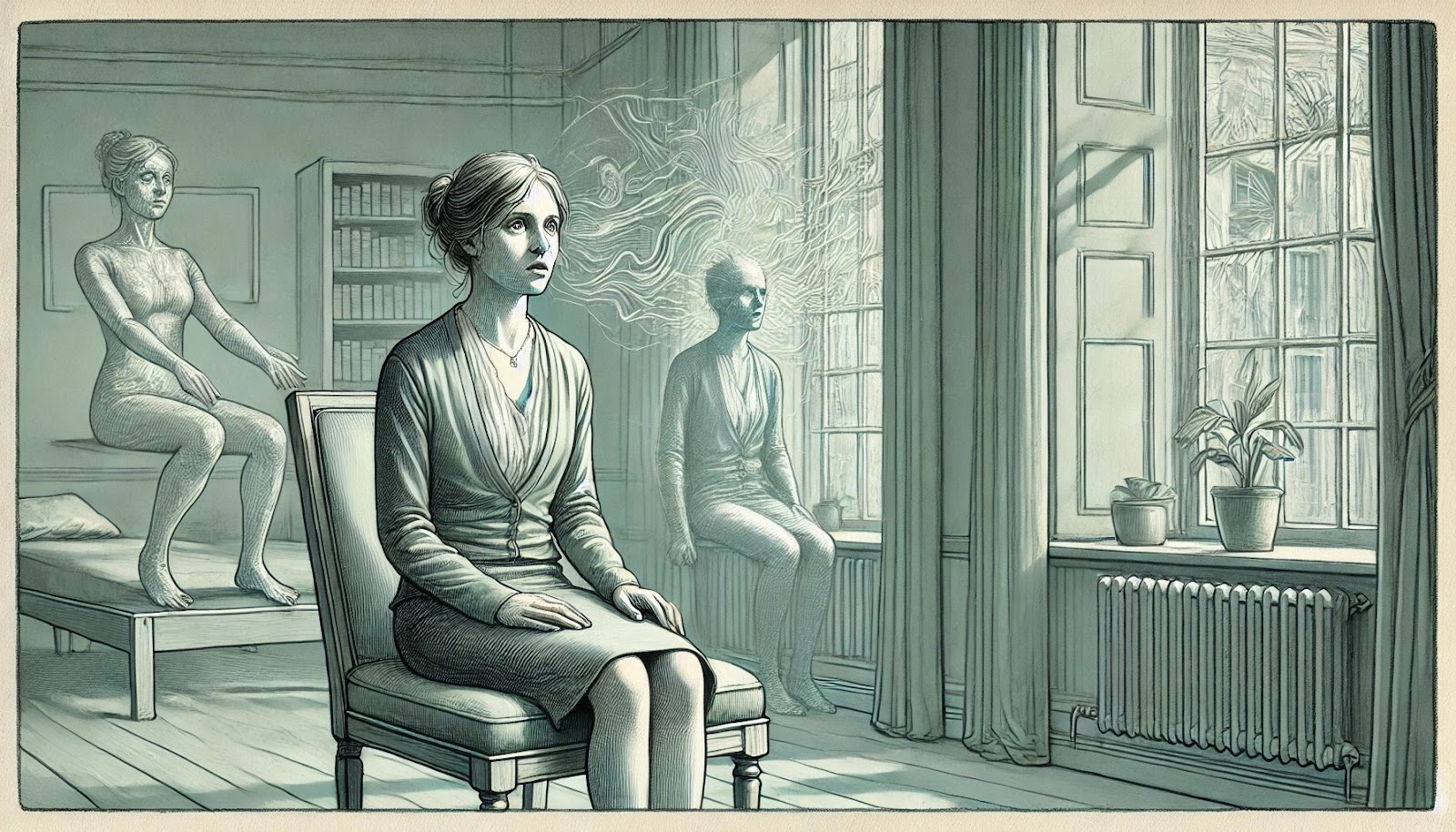
An example is seeing vivid images that others can’t see. These are classic examples of hallucinations, and they can be incredibly distressing for those who experience them.
Founded in 2010, A Mission For Michael (AMFM) offers specialized mental health care across California, Minnesota, and Virginia. Our accredited facilities provide residential and outpatient programs, utilizing evidence-based therapies such as CBT, DBT, and EMDR.
Our dedicated team of licensed professionals ensures every client receives the best care possible, supported by accreditation from The Joint Commission. We are committed to safety and personalized treatment plans.
Examples in Psychosis
In the context of psychosis, both delusions and hallucinations are common.
Common Delusions
Delusions can take many forms, but some of the most common ones are delusions of persecution, grandeur, and control:
- Delusions of persecution involve beliefs that others are out to harm or conspire against the individual.
- Delusions of grandeur involve inflated beliefs about one’s importance or abilities.
- Delusions of control involve beliefs that one’s thoughts or actions are being controlled by external forces.
Common Hallucinations
Hallucinations can affect any of the senses:
- Auditory hallucinations are the most frequently reported, which often involve hearing voices that others do not hear.
- Visual hallucinations, although less common, involve seeing things that aren’t there.
- Tactile hallucinations involve feeling sensations, like bugs crawling on the skin, without any physical cause.
Key Differences
Delusions are “false beliefs,” while hallucinations are “false perceptions.”
This distinction highlights the core difference: delusions affect how a person thinks about the world, while hallucinations affect how they perceive it. Recognizing this can help tailor treatment approaches to address the specific needs of the individual.
Most importantly, identifying whether someone is experiencing a delusion or a hallucination can guide the type of intervention required, ensuring they receive the most effective support possible.
Impact on Reality Perception
Delusions and hallucinations significantly alter how individuals perceive reality, often leading to distress and confusion.
Delusions, being false beliefs, can cause a person to misinterpret their environment and the intentions of those around them. For example, someone with delusions of persecution might believe that their neighbors are spying on them, which can lead to paranoia and social withdrawal.
Hallucinations, on the other hand, distort sensory experiences. When someone hears voices that aren’t there, it can be challenging to discern what is real and what is not. This can result in fear, anxiety, and even dangerous behavior if the hallucinations involve commands to harm oneself or others.
Causes and Triggers
Mental Health Disorders
Many mental health disorders can lead to delusions and hallucinations. Schizophrenia is perhaps the most well-known, characterized by a range of symptoms including both delusions and hallucinations. Bipolar disorder, particularly during manic or depressive episodes, can also feature these symptoms.
Besides that, severe depression with psychotic features may cause delusions and hallucinations, often reflecting the person’s depressive themes, such as feelings of worthlessness or guilt.
Medical Conditions
Beyond mental health disorders, several medical conditions can also trigger delusions and hallucinations. Neurological disorders, such as Parkinson’s disease and Alzheimer’s disease, can lead to these symptoms due to changes in brain chemistry and function.
Infections that affect the brain, like encephalitis or meningitis, may also cause hallucinations or delusions.
Treatment Strategies
Therapy Options
Cognitive Behavioral Therapy (CBT) is often used to help individuals challenge and change unhelpful beliefs associated with delusions. This therapy can help individuals develop more adaptive thinking patterns and coping strategies.
Besides CBT, supportive therapy can provide a safe space for individuals to express their experiences and feelings.
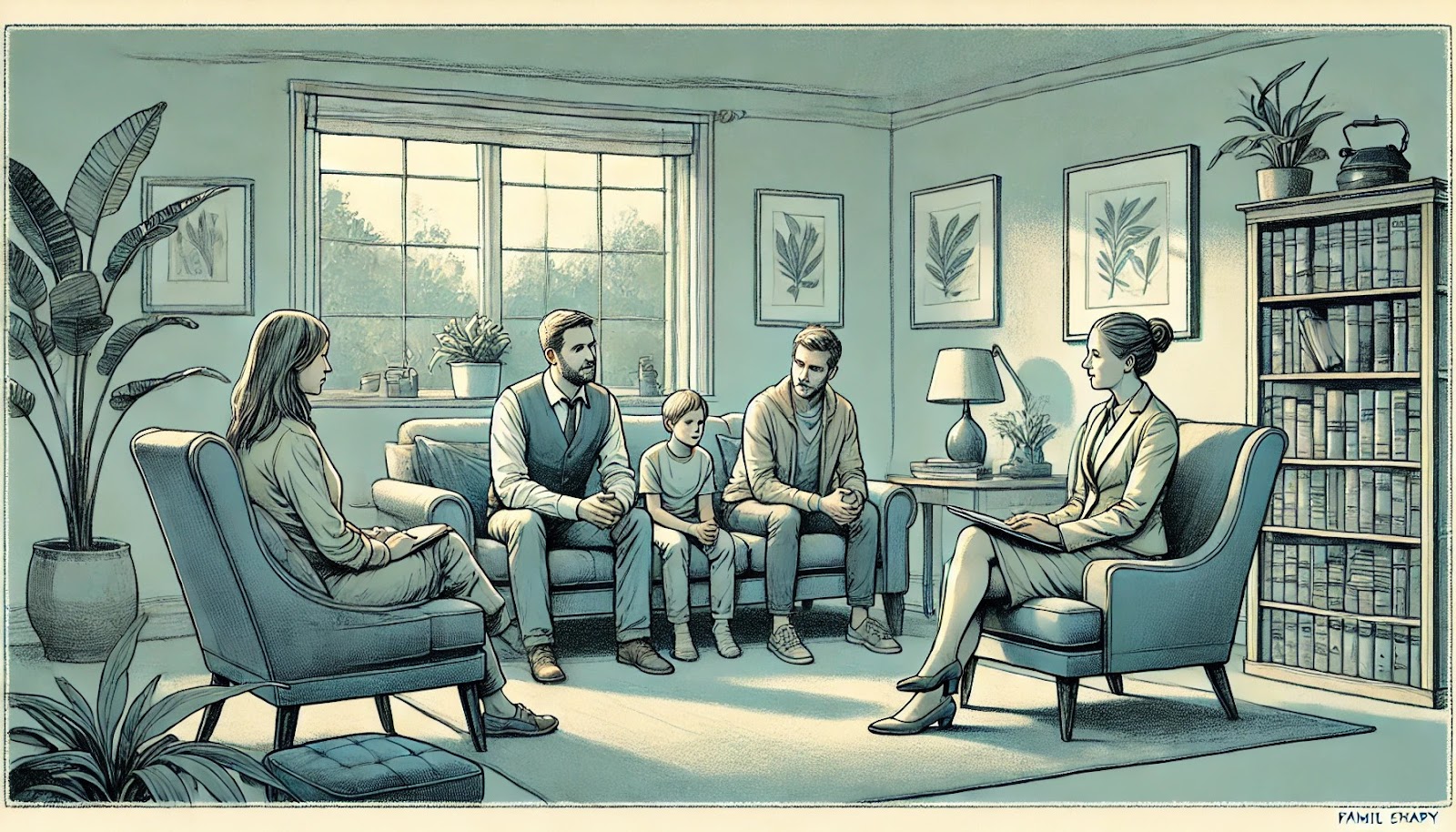
Family therapy may also be beneficial, helping family members understand the condition and learn ways to support their loved one.
Medication Approaches
Antipsychotic medications are commonly prescribed to help manage delusions and hallucinations. These medications work by altering the effects of neurotransmitters in the brain, which can reduce the intensity of symptoms.
It’s important for individuals to work closely with their healthcare provider to find the right medication and dosage, as this can vary greatly from person to person.
Support Systems
Having a strong support system is invaluable for individuals experiencing delusions and hallucinations. This can include family, friends, support groups, and mental health professionals.
Support systems provide emotional support, help monitor symptoms, and encourage adherence to treatment plans. They play a critical role in recovery and maintaining stability.
Finding Expert Care for Psychosis at AMFM

At AMFM, we don’t just treat psychosis, we help rebuild connections with reality while respecting each person’s unique experience. All done from home-like facilities across California, Virginia, and Washington.
Our team of specialists approaches psychosis treatment with compassion and clinical excellence. We begin with a comprehensive assessment to identify whether you’re experiencing delusions, hallucinations, or both, allowing us to create a personalized treatment plan that addresses your specific needs.
Unlike one-size-fits-all approaches, our treatment programs range from residential care for severe symptoms to outpatient options for ongoing management. Our multidisciplinary team of clinicians combines evidence-based therapies like CBT with medication management and family support to address both the symptoms and underlying causes of psychosis.
If you or someone you love is struggling with delusions or hallucinations, reach out to us for a free, confidential assessment. With proper treatment at AMFM, reconnection with reality and an improved quality of life are possible.
Frequently Asked Questions (FAQ)
Can a person have both delusions and hallucinations?
Yes, it is possible for a person to experience both delusions and hallucinations simultaneously. This is often seen in conditions like schizophrenia, where both cognitive and sensory distortions occur.
The presence of both symptoms can complicate the individual’s perception of reality, making it important to provide comprehensive care that addresses both aspects.
How do diagnoses differ?
Diagnosing delusions and hallucinations involves a detailed evaluation by a mental health professional. This process includes gathering a comprehensive history, understanding the context of the symptoms, and differentiating them from other potential causes.
The diagnosis is crucial as it informs the treatment approach, ensuring that it is specific to the individual’s needs and the nature of their symptoms.
What therapies are effective?
Several therapeutic approaches have proven effective in managing delusions and hallucinations. CBT is commonly used to help individuals challenge and modify unhelpful beliefs and perceptions. This therapy focuses on developing coping strategies and improving cognitive flexibility.
Supportive therapy, family therapy, and psychoeducation are also valuable in providing support and understanding to both the individual and their family.
What should I do if a loved one is showing signs of psychosis?
Approach them with empathy rather than challenging their beliefs directly. Remember that what they’re experiencing feels very real to them. Contact a mental health professional or treatment center like A Mission For Michael (AMFM) for guidance. AMFM offers free, confidential assessments and can help determine appropriate treatment options, whether that’s residential care for severe symptoms or outpatient programs for ongoing management.








